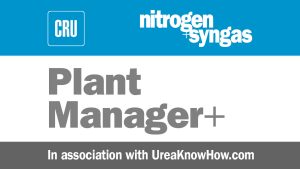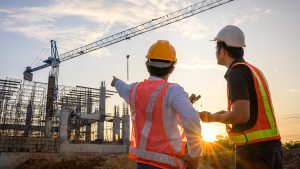
2025 AIChE Ammonia Safety Symposium
Venkat Pattabathula reports on the American Institute of Chemical Engineers’ (AIChE) Safety in Ammonia Plants and Related Facilities Symposium, held from September 7–11th 2025, in Atlanta, Georgia, USA.

Venkat Pattabathula reports on the American Institute of Chemical Engineers’ (AIChE) Safety in Ammonia Plants and Related Facilities Symposium, held from September 7–11th 2025, in Atlanta, Georgia, USA.

The following case study describes a serious incident and the consequences of erroneously mixing nitric acid with hydrochloric acid. In Part 1 we reported on the incident and the causes that led up to the event. In part 2 the impact, recommendations and lessons learned will be discussed.

Advances in cooling technology are providing fertilizer facilities with new options when it comes to upgrading outdated equipment and improving environmental sustainability of their existing operations. Igor Makarenko of Solex Thermal Science explores cooling strategies to improve operational efficiencies while also reducing their energy consumption, greenhouse gas emissions and overall carbon footprint.

Globally, operational renewable ammonia projects have exceeded one gigawatt (GW) of installed electrolyser capacity for the first time. Kevin Rouwenhorst of the Ammonia Energy Association (AEA) provides an overview of well-advanced projects and the associated technology options for ammonia synthesis.

Freeport Indonesia may be forced to suspend operations at its Manyar smelter at the end of October due to a lack of copper concentrate, according to local press reports. The news follows the mudslide at the Grasberg mine in September, which killed seven workers. Grasberg, which represents almost 3% of global copper mine production, has halted production and Freeport says that it may not return to pre-accident operating rates until 2027. Stocks of copper concentrate at Grasberg were estimated to be only sufficient to operate the Manyar smelter until the end of October. The $3.7 billion Manyar smelter only resumed operations in May after a fire broke out in October last year, damaging the plant.

Sultech Global Innovation Corp., a Canadian agricultural technology company, has signed a memorandum of understanding (MoU) with ADNOC Sour Gas for its micronised elemental sulphur technology. Under the MoU, the companies will conduct a feasibility study and pilot production program to establish the UAE’s first commercial micronised sulphur manufacturing facility. The initiative will integrate Sultech’s patented micronisation process within ADNOC’s sulphur granulation at the Shah Gas Plant, the world’s largest ultra-sour gas operation.

Metso has completed the expansion of its service centre in Antofagasta, Chile, adding an additional 1,200 m² of operational capacity, totalling 4,800 m² of technical workspace. Strategically located in the La Negra industrial district, at the heart of northern Chile’s mining area, the service centre has tripled its technical-commercial agreements in recent years, becoming a key strategic partner for major mining companies in the country. Following the expansion, the centre can now repair and refurbish large-scale equipment including HRC™ and high pressure grinding roll units, Vertimill® grinding technology, and mills for mining customers. It also supports beneficiation and dewatering technologies, such as filter plate pack service offerings. In addition, the centre provides service capabilities for mining crushers, grinding mills, screens, and car dumpers.

ADNOC has received bids for its Ruwais Sulphur Terminal expansion. The project aims to expand the existing sulphur handling terminal facilities, SHT-1 and SHT-2, located in Ruwais, Abu Dhabi. The purpose of the expansion is to increase the capacity of the Ruwais sulphur handling terminal to accommodate an additional 10,600 t/d of liquid sulphur from the Hail and Ghasha offshore sour gas field development.

Austrlai’s Northern Territories Government has approved a mining licence for Verdant Minerals’ Ammaroo phosphate project. The approval follows the granting of two mineral leases in March and represents a critical step towards construction and mining operations at one of the world’s largest phosphate resources. Verdant estimates the value of production over the life of the mine to exceed $15 billion. Verdant says that securing the mining licence puts the project firmly on track to reach a final investment decision and commence construction as early as mid-2027. Located 200 kilometres south-east of Tennant Creek, the Ammaroo phosphate deposit contains more than one billion tonnes of phosphate ore.

Aurubis says that it is in discussions with the US government about possible financial support for the construction of a new copper smelter. Reuters reports comments from Aurubis CEO Toralf Haag during LME Week that there had been a positive response from the Trump administration. The US is currently only able to supply about half of its refined copper demand of 1.7 million t/a from domestic production, and the gap may widen as demand increases.